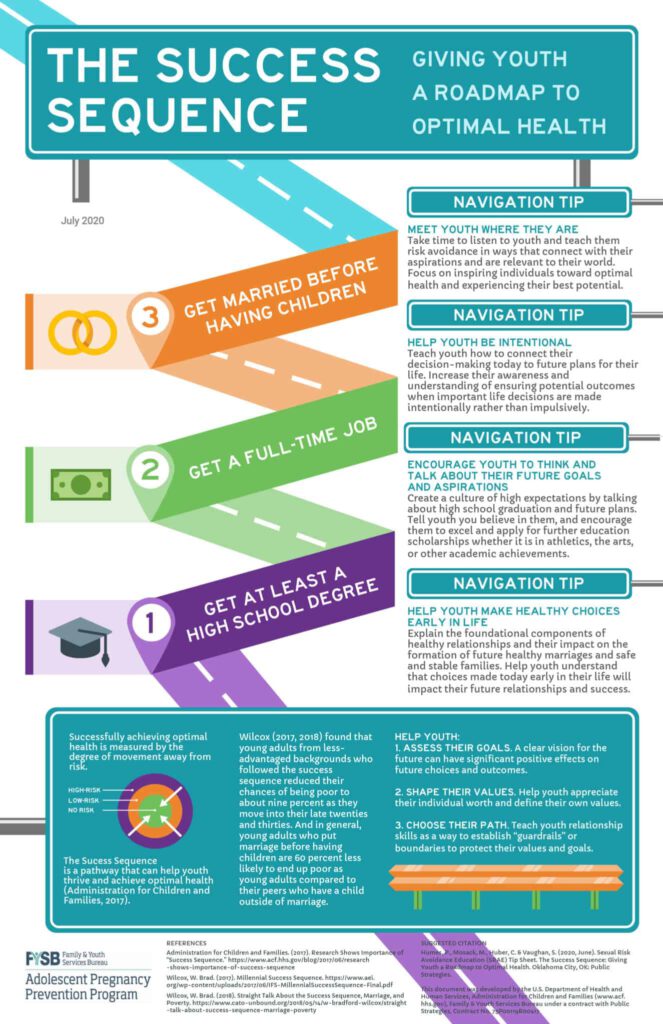Success comes in many forms. We might define success as achieving certain life goals -- having your dream job, marrying the right person for you, or enjoying a life where work and play are balanced.
Whatever your definition of success, it most likely relies upon financial security for your and your family. You may have seen examples of this kind of success as you grew up, or you may have felt like no one around you made it to this point.
No matter our backgrounds, we all want success for our children. And regardless of what we know or think we know, we want to provide them with concrete results and a clear roadmap to get there.
Luckily, Wendy Wang and Brad Wilcox conducted a series of studies to provide just those practicalities.
Known as "The Success Sequence," their conclusions identified three steps that, if done in order, all but guaranteed a life without poverty.
1) Graduate from high school. As hard as it can be to get our kids excited about school most days, we all realize the value of a good education. In addition to the knowledge they gained by finishing school, a person demonstrates perseverance and responsibility, two keys traits that set them up for a positive future.

2) Get a full-time job. It should come as no surprise that gainful employment greatly enhances a person’s financial security. When someone can pay all their bills — and know how to save for the future — their chances of avoiding poverty are dramatically improved. In fact, no matter what your situation is, completing these first two steps cuts your odds of falling into poverty by more than 50%.
But there’s one more step that improves your child’s odds of success even more…one that might not seem obvious at first blush.
3) Get married before having children. We may have heard this advice in society over the years, but it may seem more like moral idealism than a practical financial plan. Many people ask “How does waiting to have kids affect someone’s odds of being in poverty?”
As many of our students have pointed out over the years, “Kids are expensive!” The younger you are when you have your first child, the harder it is to provide for both that child and yourself (as well as your partner, if they remain in the picture).
By waiting until marriage to have kids, you not have direct financial savings — always helpful to avoid poverty — but you also give yourself time to pursue your goals and dreams.
We all realize that we adults do not have all the answers. We need time to figure life out. As soon as we have kids, our attention justifiably shifts to them. That means our goals take a backseat — as they should — to the needs of our children.
And not to overstate the obvious, but if you wait until marriage to have a child, you set yourself up for a partnership. Having another adult in your household means another person to care for, but it also means another person to contribute to the financial (and emotional and social) health of you and your child.
These three simple (but admittedly difficult) steps are the surest means to lead your child to a successful future. They might stumble as they pursue this success sequence, but as long as you can help them keep their eyes on the bigger picture, you will set them up for the best shot at a successful life.



